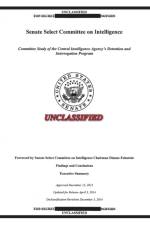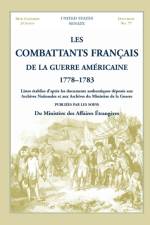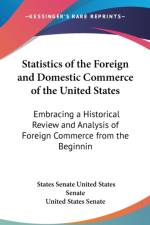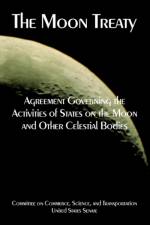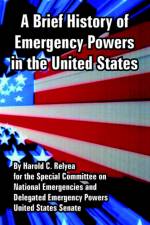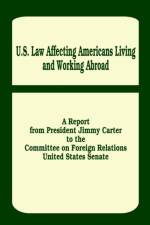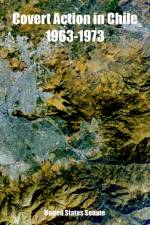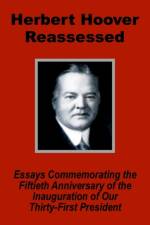von United States Senate & Harold C Relyea
29,00 €
When the Special Committee began its work in January 1973, there was no basic study outlining the use of emergency powers in the United States from the time of the Philadelphia Constitutional Convention to the present. To fill this scholarly gap, we asked Dr. Harold Relyea of the Library of Congress to write a chronological history of the American government in times of emergency. This is a valuable study. The great crises of American history are highlighted; so are the mechanisms of administration by which the Federal Government--all three branches--met particular emergency situations. Especially significant are the experiences and legacies of Shay's Rebellion, the Civil War, labor strikes of the late 19th century, and both World Wars. The contemporary situation is more complicated. The United States has been in a state of national emergency since March 9, 1933. In fact, there are now in effect four Presidentially proclaimed states of national emergency. In addition to the banking emergency declared by President Roosevelt, there is also the national emergency proclaimed by President Truman on December 16, 1950, during the Korean conflict, plus the states of national emergency declared by President Nixon on March 23, 1970, and August 15, 1971. Concomitantly, especially since the days of the 1933 economic emergency, it has been Congress' habit to delegate extensive emergency authority--which continues even when the emergency has passed--and not to set a terminating date. The United States thus has on the books at least 470 significant emergency powers statutes without time limitations delegating to the Executive extensive discretionary powers, ordinarily exercised by the Legislature, which affect the lives of American citizens in a host of all-encompassing ways. This vast range of powers, taken together, confer enough authority to rule this country without reference to normal constitutional processes. These laws make no provision for congressional oversight nor do they reserve to Congress a means for terminating the "temporary" emergencies which trigger them into use. No wonder the distinguished political scientist, the late Clinton Rossiter, entitled his post-World War II study on modern democratic states, "Constitutional Dictatorship." Emergency government has become the norm. The Special Committee has undertaken a study of the states of national emergency in which we now find ourselves, and the plethora of emergency powers, including Executive Orders and other presidential directives, classified and unclassified, that Congress and the Executive have brought into being over the years. The Special Committee has also been examining the consequences of terminating the declared states of national emergency that now prevail; to recommend what steps Congress should take to insure that the termination can be accomplished without adverse effect upon the necessary tasks of governing; and, also, to recommend ways in which the United States can meet future emergency situations with speed and effectiveness but without relinquishment of congressional oversight and control. Dr. Relyea's study provides the Special Committee and the public an informative and useful background to the present quandry in which we now find ourselves.Frank ChurchCharles McC. Mathias, Jr.Co-Chairmen

